
"The refusal of one decent man
outweighs the acquiescence of the multitude."
5 subscribers
How to get URL link on X (Twitter) App

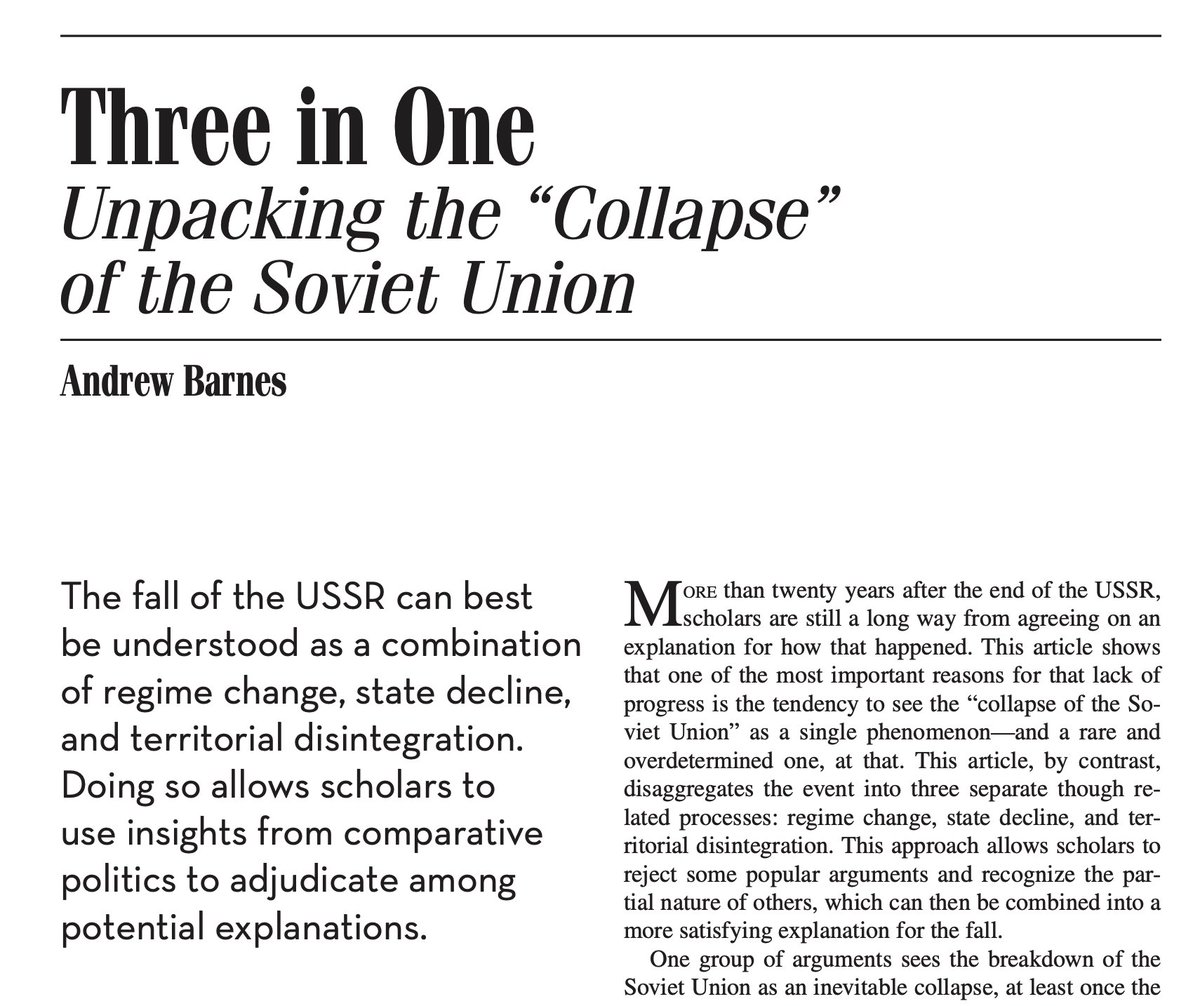
 Link:
Link: 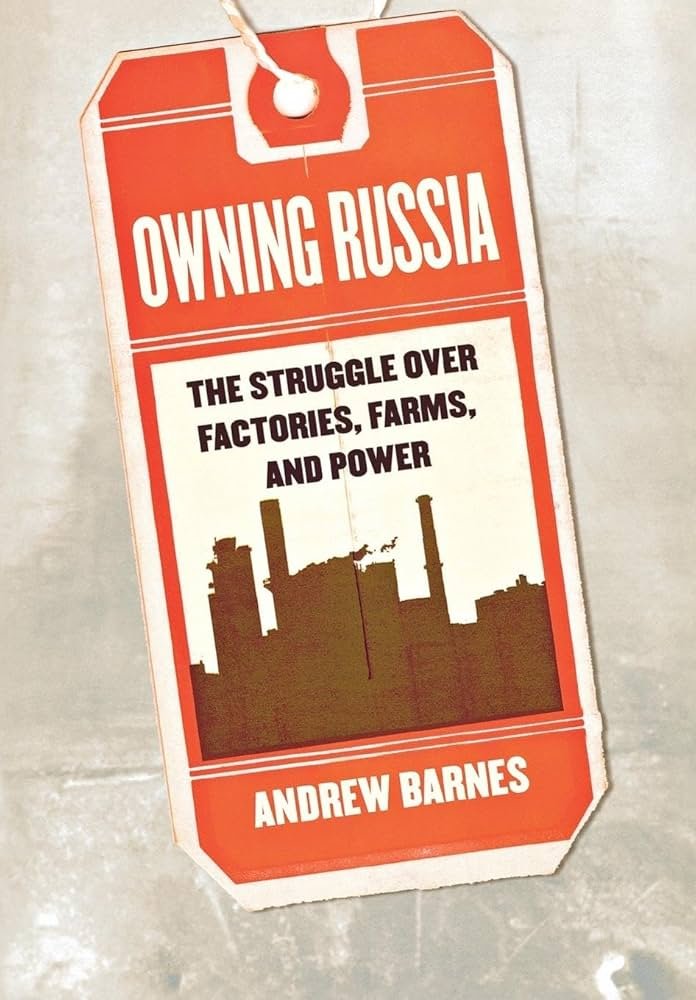

https://x.com/JonathonPSine/status/1994496492091183357
 Source for the above is page 68, chapter 4 "A Quantitative History of Regicide in China," in the Quantitive History of China book in the QT.
Source for the above is page 68, chapter 4 "A Quantitative History of Regicide in China," in the Quantitive History of China book in the QT. 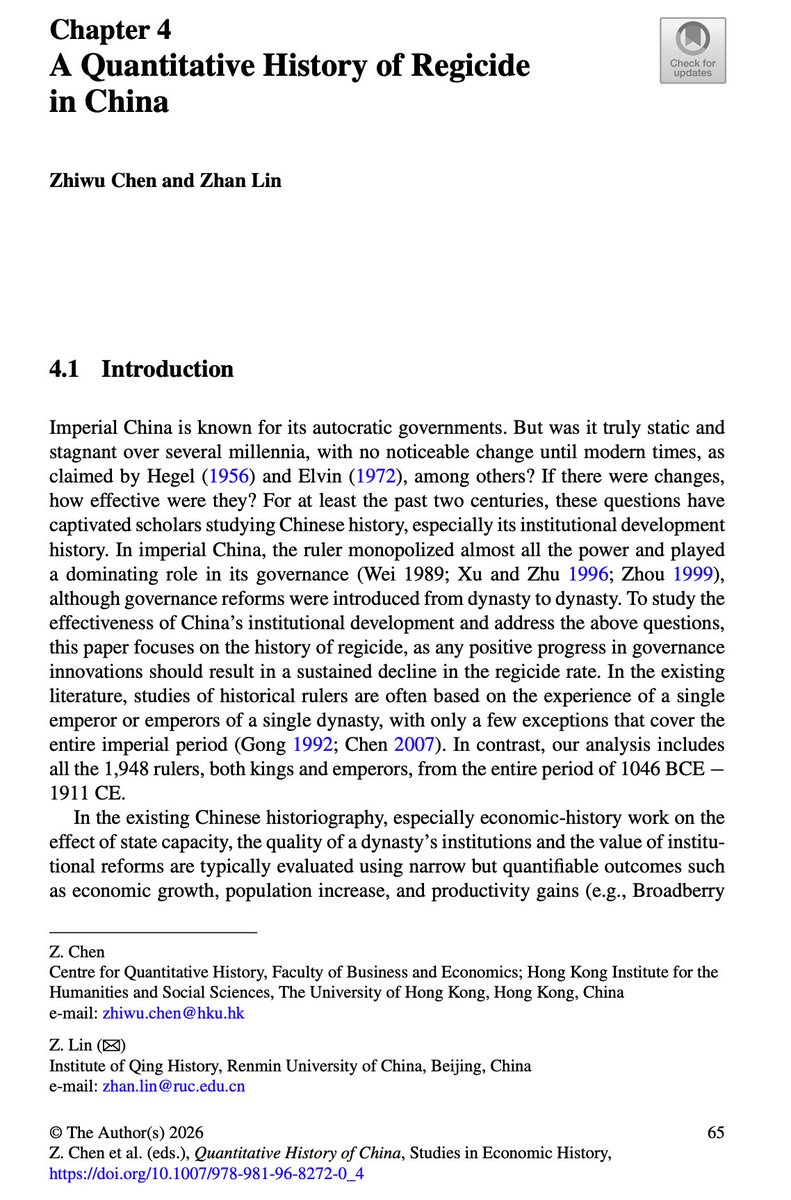
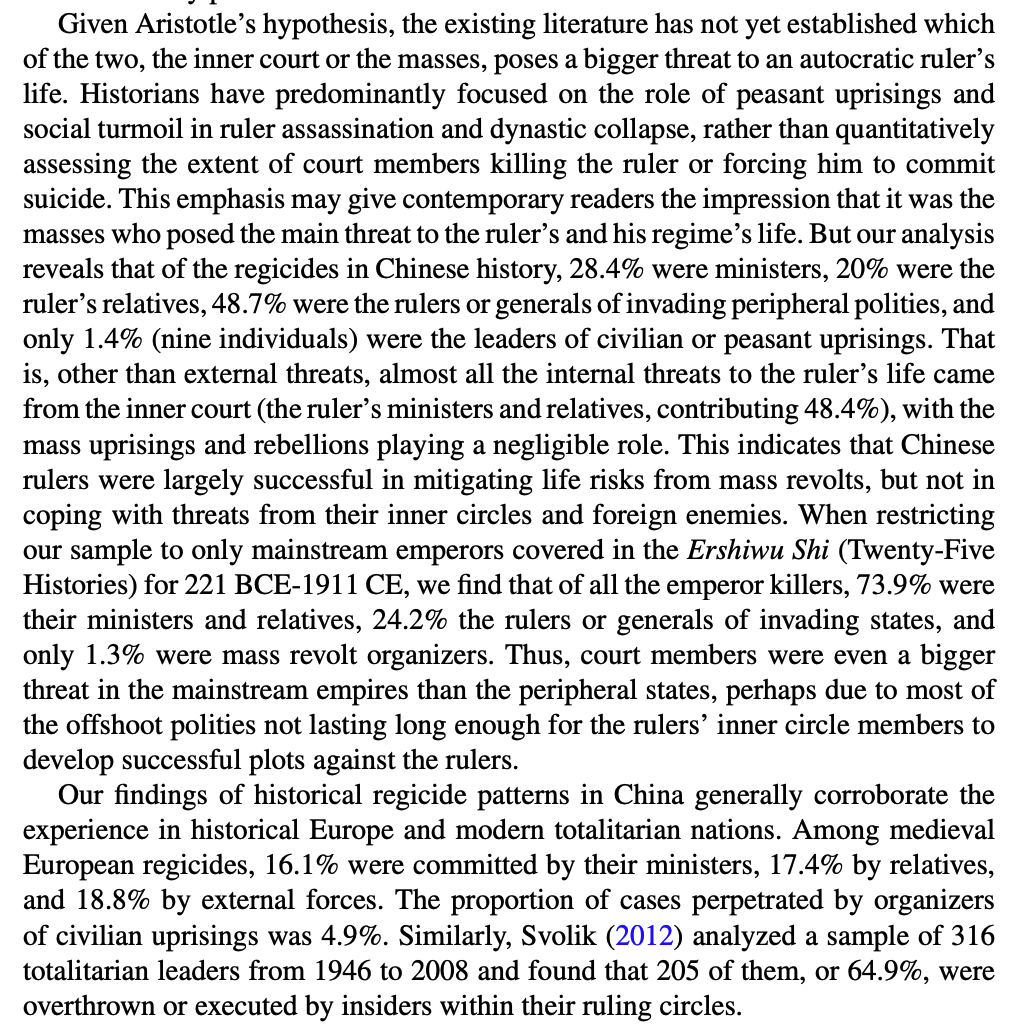
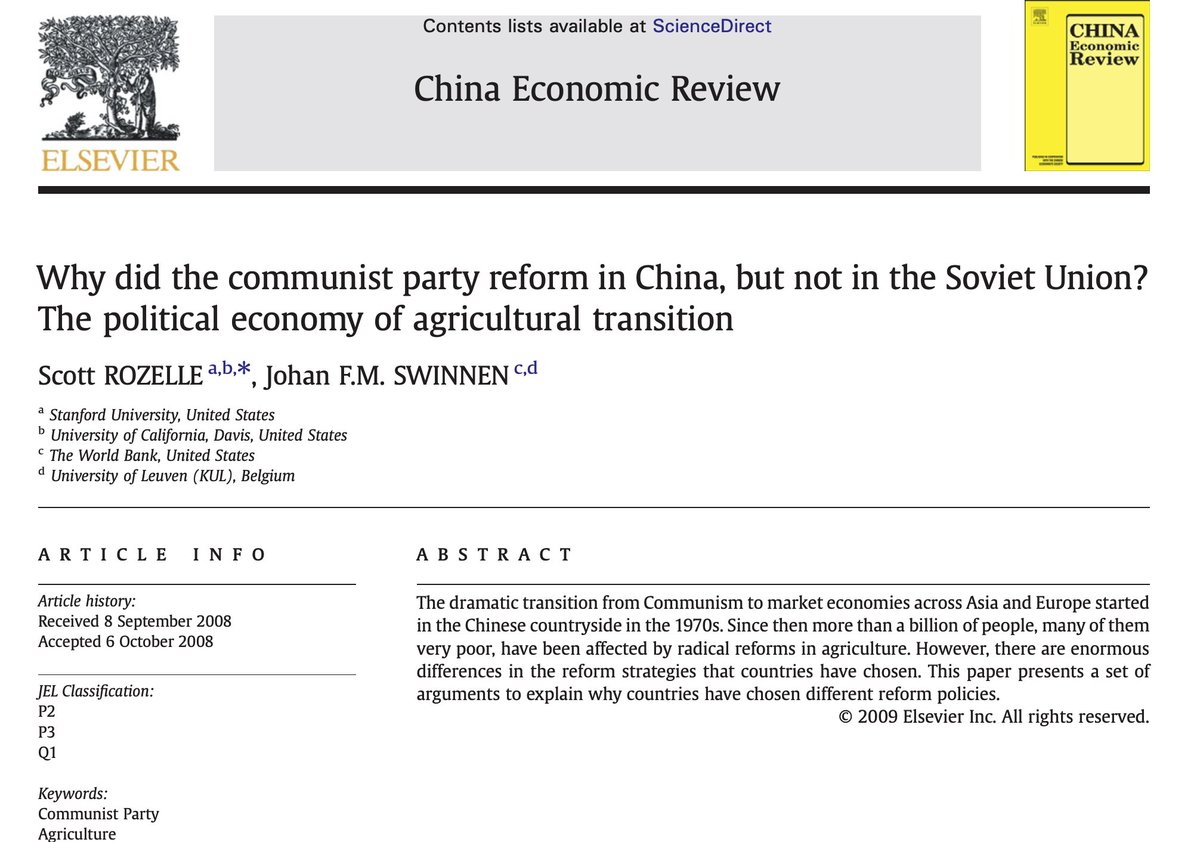
 The issue was not really elite level opposition.
The issue was not really elite level opposition.https://x.com/JonathonPSine/status/1886934242782752768?s=20
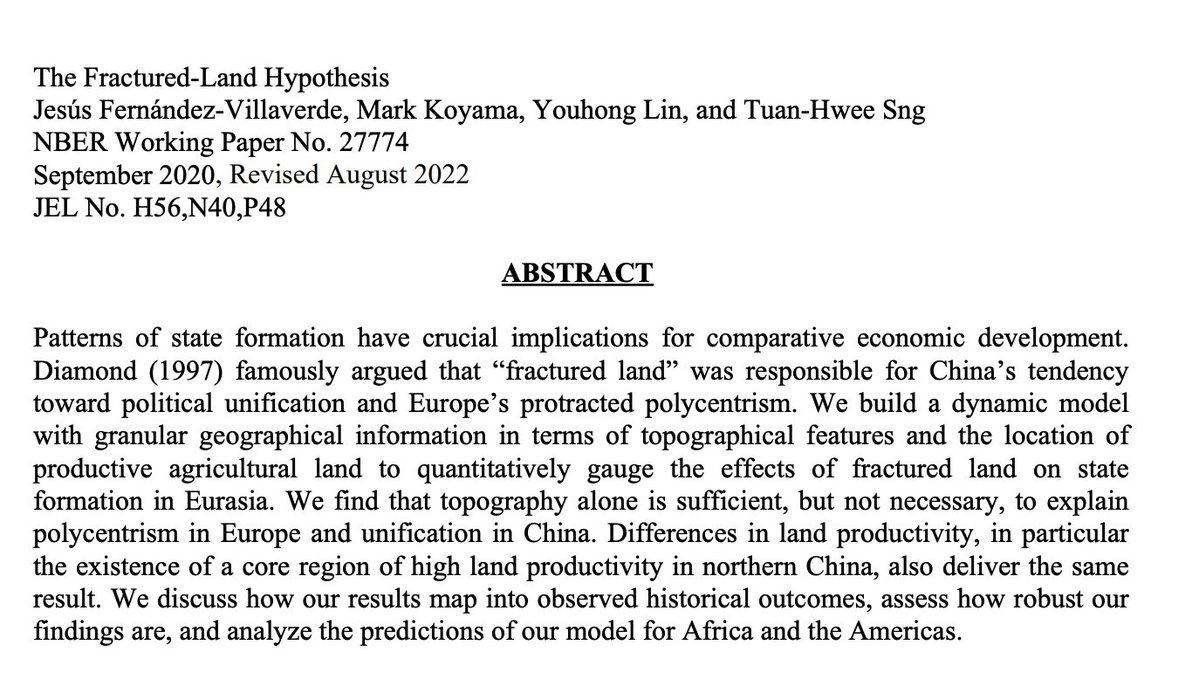
 Human population density mediated by agricultural viability. Secondarily, nature and location of topographical features eg mountains and rivers.
Human population density mediated by agricultural viability. Secondarily, nature and location of topographical features eg mountains and rivers. 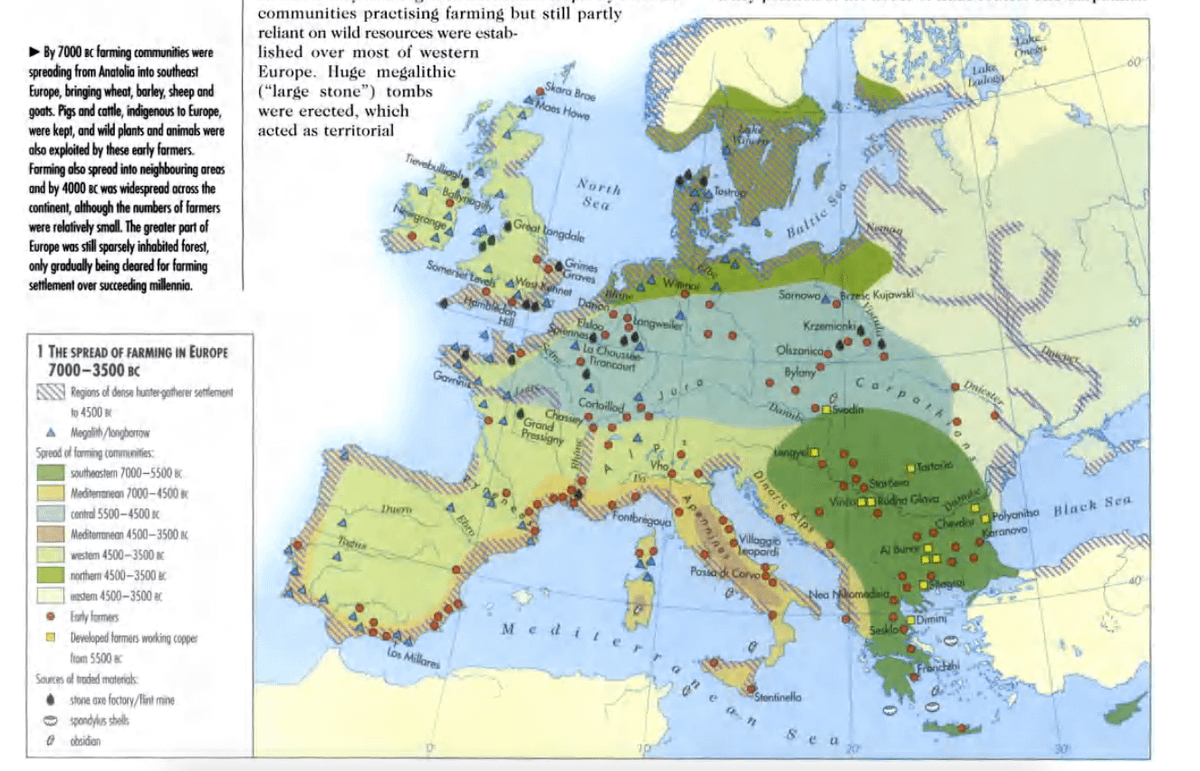







 I highlight two reasons:
I highlight two reasons:
 A study of Apple in China is a great microcosm to understand the rapid upskilling of China’s workforce. I doubt any foreign company played a more important role facilitating China’s manufacturing rise.
A study of Apple in China is a great microcosm to understand the rapid upskilling of China’s workforce. I doubt any foreign company played a more important role facilitating China’s manufacturing rise.https://x.com/JonathonPSine/status/1708175553331646897

https://x.com/danwwang/status/1372693706587840512Science, Tech, and Industry Development Overviews

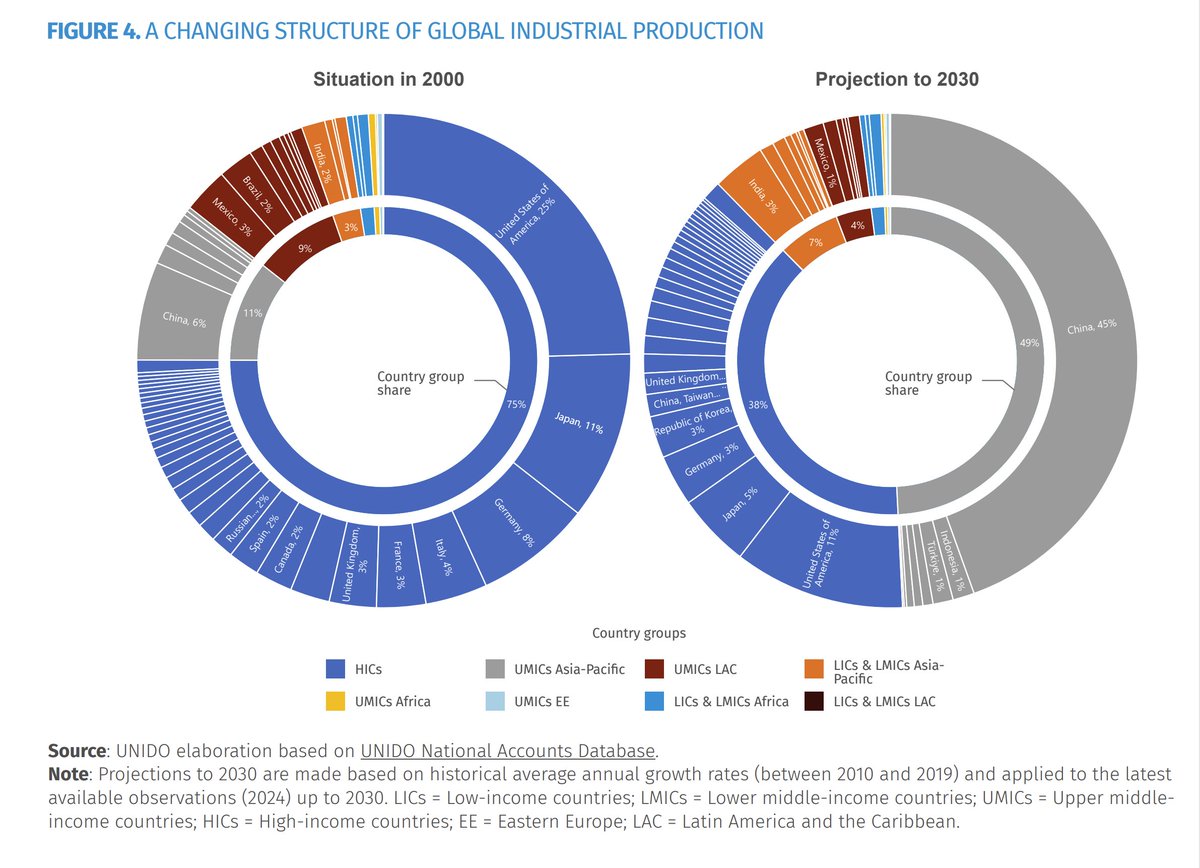
 The stat comes from a 2024 UN report that, for whatever reason, used average growth rates from 2010–2019 to extrapolate linearly from 2024.
The stat comes from a 2024 UN report that, for whatever reason, used average growth rates from 2010–2019 to extrapolate linearly from 2024.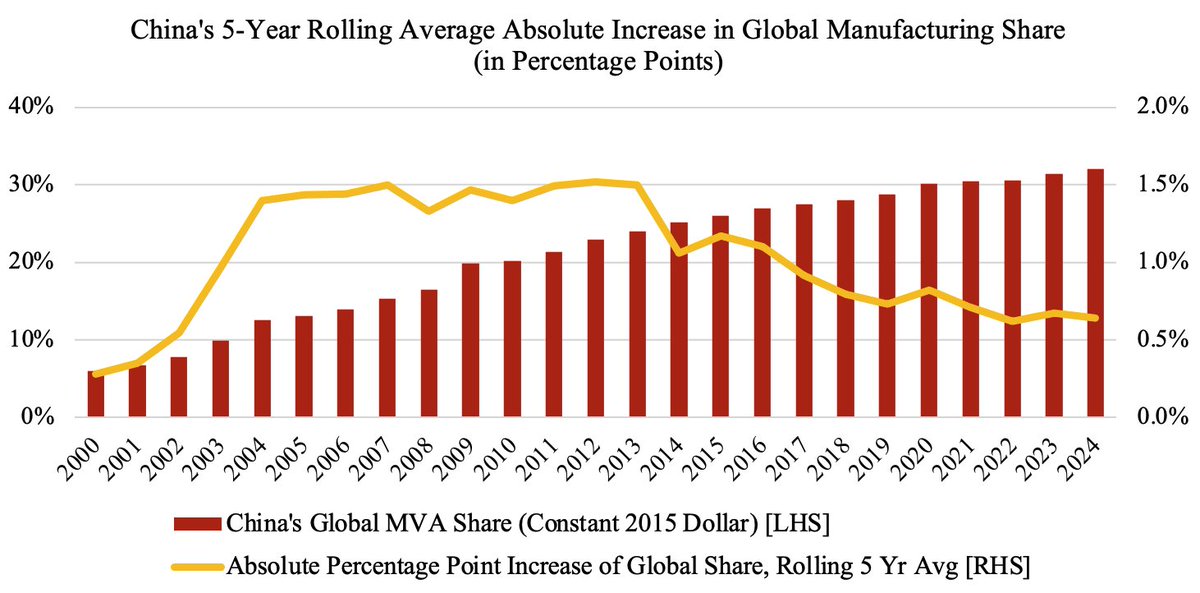



 They've developed a very cool database—the OECD MAnufacturing Groups and Industrial Corporations (MAGIC) database—that they draw on to do this, and have written several other reports comparing industrial policies and subsidies across countries.
They've developed a very cool database—the OECD MAnufacturing Groups and Industrial Corporations (MAGIC) database—that they draw on to do this, and have written several other reports comparing industrial policies and subsidies across countries. 

 Xi Zhongxun knew suffering. He buried siblings lost to famine. At 14, he tried to kill his teacher. Soon after, he lost both parents. His first wife was only available because her husband was beheaded by a warlord.
Xi Zhongxun knew suffering. He buried siblings lost to famine. At 14, he tried to kill his teacher. Soon after, he lost both parents. His first wife was only available because her husband was beheaded by a warlord.
 They devise new estimates for total numbers of SOEs in the Chinese economy by tracing “ownership trees” from central and local SASAC and finance bureaus / departments. They count:
They devise new estimates for total numbers of SOEs in the Chinese economy by tracing “ownership trees” from central and local SASAC and finance bureaus / departments. They count:
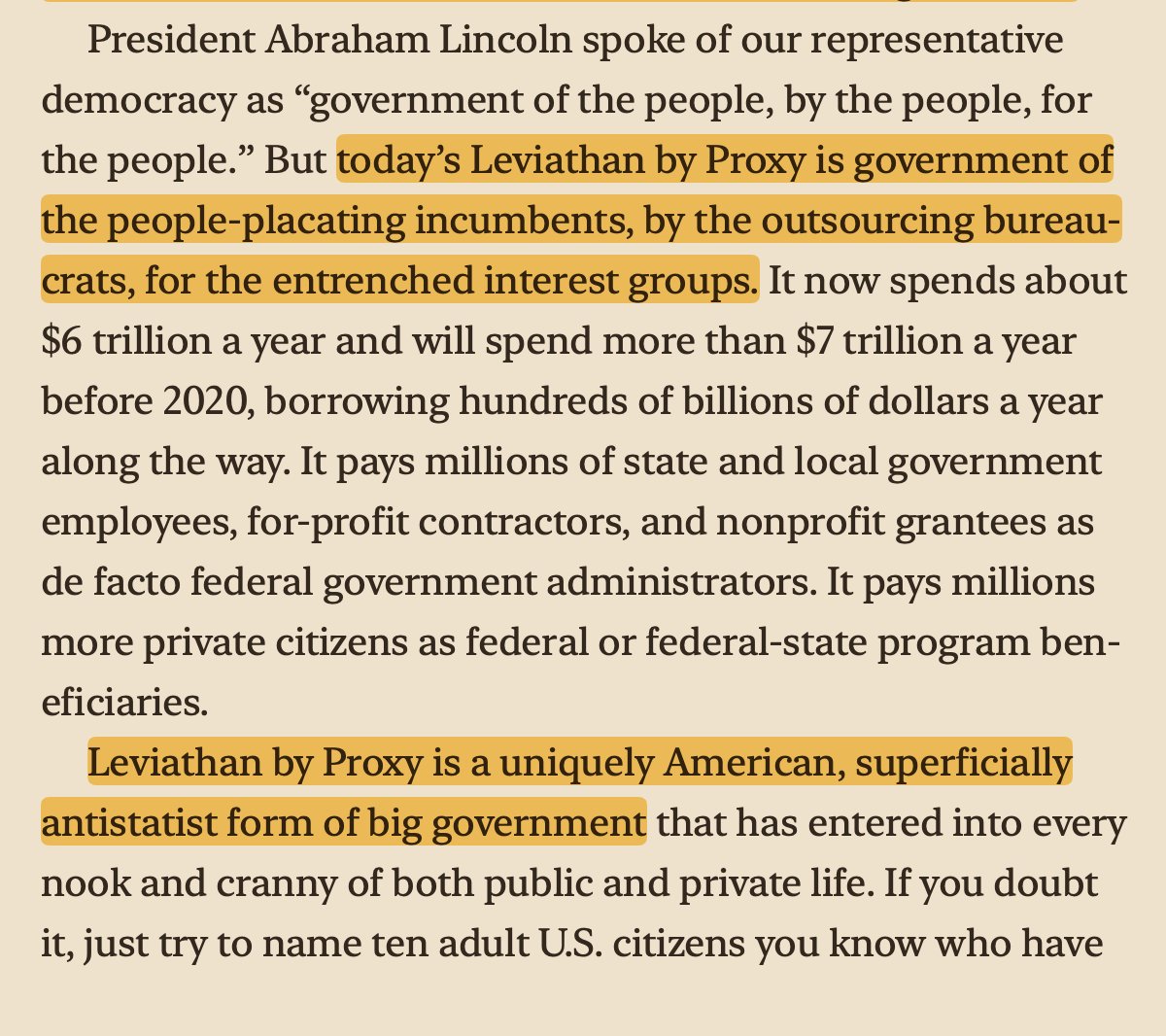
https://twitter.com/JonathonPSine/status/1892342686809543021
 Congress, not the bureaucracy itself, is at the root of the problem:
Congress, not the bureaucracy itself, is at the root of the problem: 

 At the center of the analysis are assessments of the General Secretary’s power as well as the nature of “entrenched bureaucratic interests” within a Leninist system. The essay suggests some potential lessons—and pitfalls—relevant to China analysis today.
At the center of the analysis are assessments of the General Secretary’s power as well as the nature of “entrenched bureaucratic interests” within a Leninist system. The essay suggests some potential lessons—and pitfalls—relevant to China analysis today.


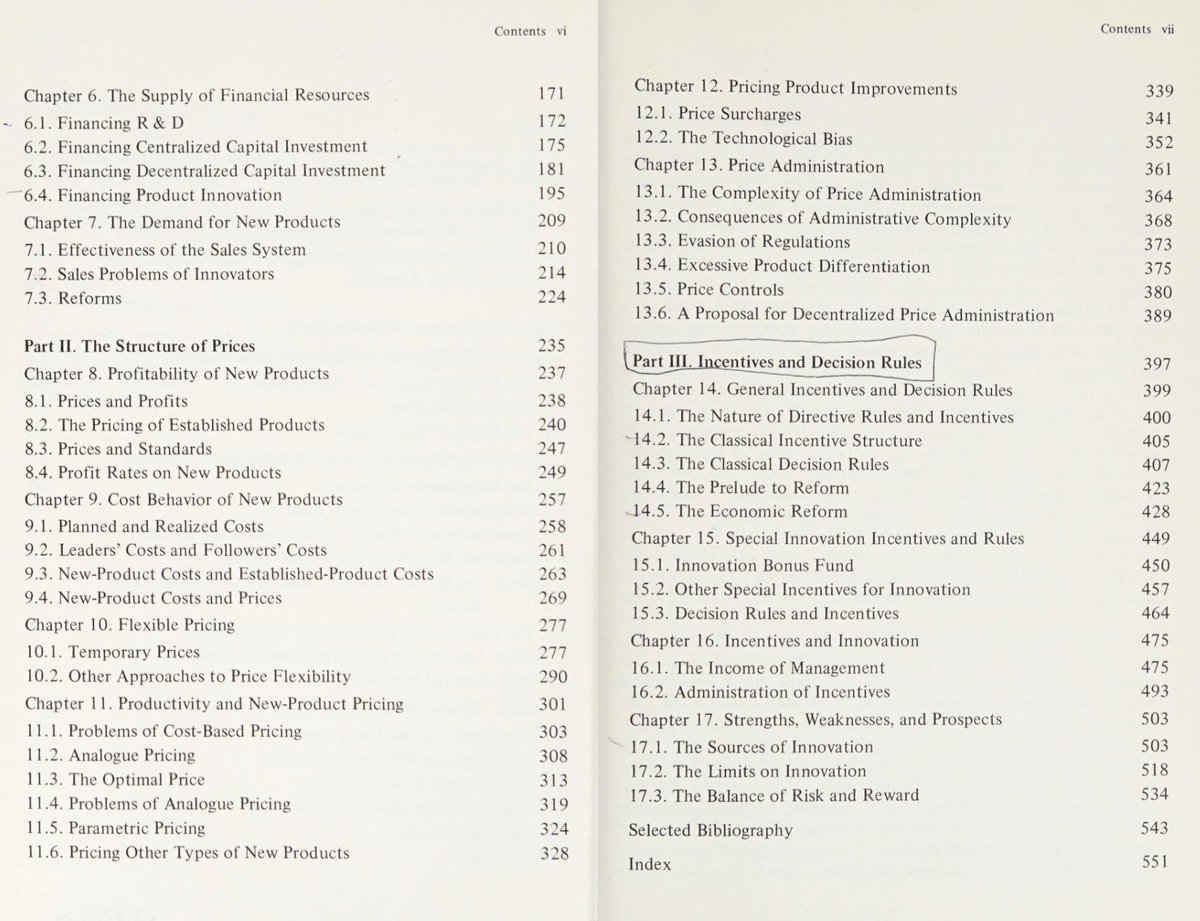 The last chapter is a particularly good summary of his findings and can be read for free
The last chapter is a particularly good summary of his findings and can be read for free

 Beginning in the early 1980s the Party-state transformed prefectures from a dispatched office of a province to a level in the administrative hierarchy in its own right.
Beginning in the early 1980s the Party-state transformed prefectures from a dispatched office of a province to a level in the administrative hierarchy in its own right.

 One interesting thing I've rarely seen commented on are the "four major tests" (四大考验) first identified under Hu at 17th CC's 4th Plenum in 2009.
One interesting thing I've rarely seen commented on are the "four major tests" (四大考验) first identified under Hu at 17th CC's 4th Plenum in 2009.
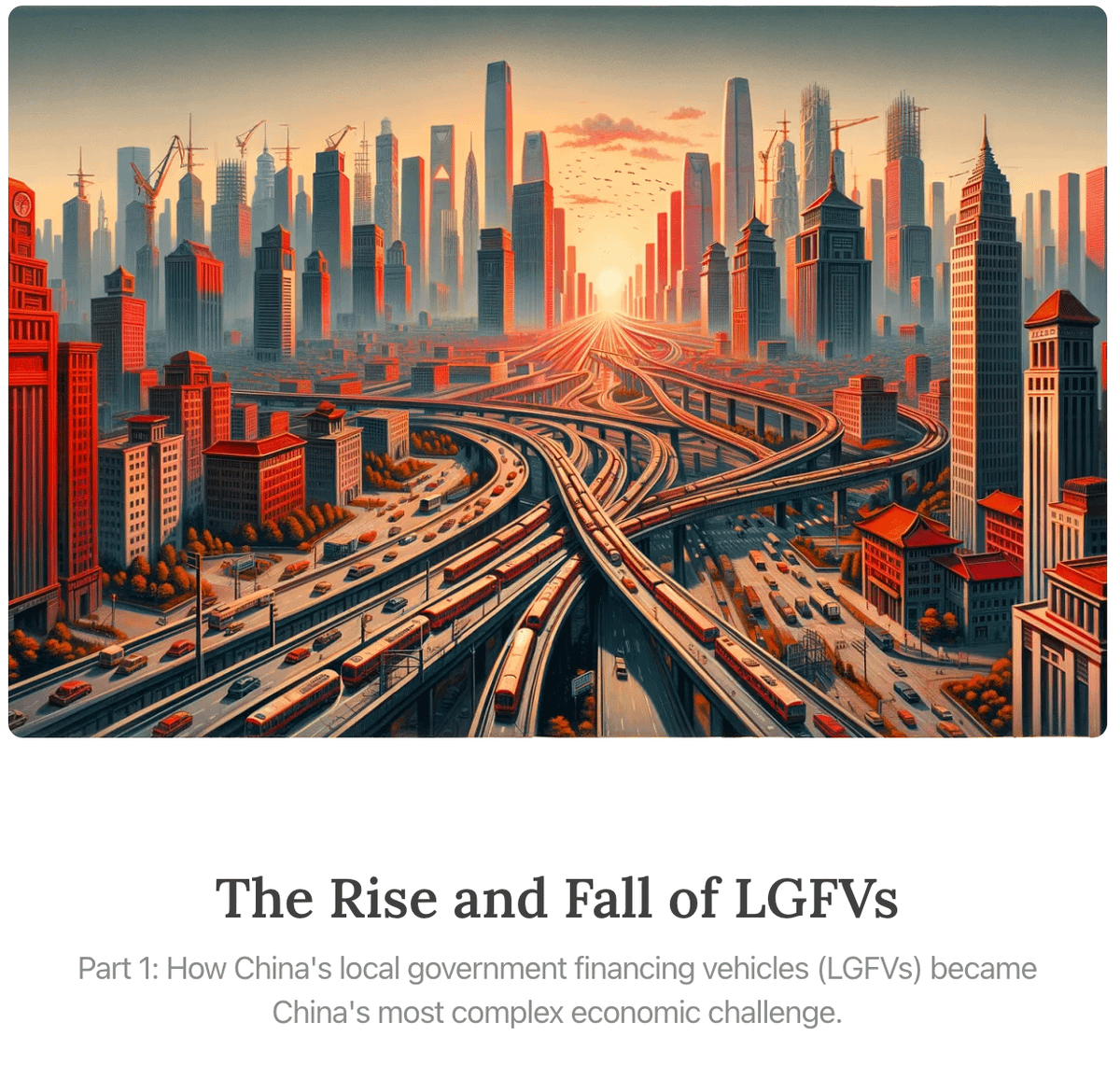
 It is a long and comprehensive post, and no offense will be taken should the reader choose to treat it as a source for reference material. Efforts were made, however, to make it an enjoyable read. cogitations.co/p/the-rise-and…
It is a long and comprehensive post, and no offense will be taken should the reader choose to treat it as a source for reference material. Efforts were made, however, to make it an enjoyable read. cogitations.co/p/the-rise-and…

 General fiscal revenue (not including off-budget or other funds) has ebbed and flowed since 1978. In that year it was 30% of a small base GDP.
General fiscal revenue (not including off-budget or other funds) has ebbed and flowed since 1978. In that year it was 30% of a small base GDP. 


